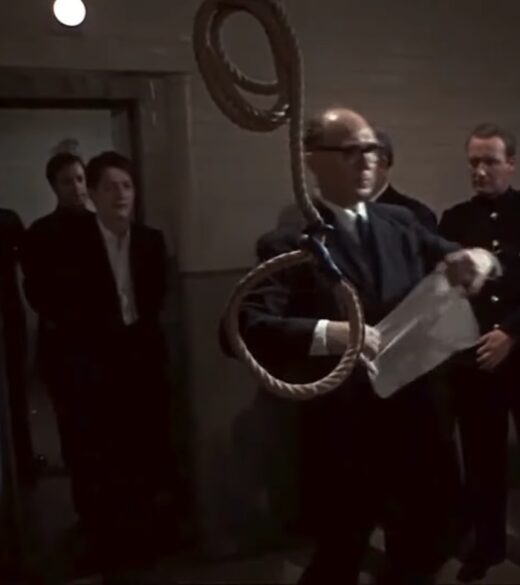What part of ’32 weeks’ don’t people understand?

Today (Monday), a woman in Stoke-on-Trent in England was sentenced to 28 months’ imprisonment for aborting her pregnancy at between 32 and 34 weeks. She did this by deceiving a major abortion provider, the British Pregnancy Advisory Service (BPAS), to supply her with the necessary medication by telling them she was earlier in her pregnancy than she actually was. The 44-year-old woman was told she might have received a suspended sentence if she had pleaded guilty at the earliest opportunity. She had moved back in with an ex-partner at the start of lockdown, but the baby she was carrying was not his. The judge, Edward Pepperall (right), said he had received a letter co-signed by various women’s health organisations, but dismissed it, saying it “has the capacity to be seen as special pleading by those who favour wider access to abortions and is, in my judgment, just as inappropriate as it would be for a judge to receive a letter from one of the groups campaigning for more restrictive laws”.
The sentence has led to predictable outrage from pro-abortion campaigners, many of whom favour abolishing time limits on abortion altogether, even if they do not say it out loud. I have seen suggestions that the law in question was passed by “puritanical 19th-century men”, that it is all about controlling women’s bodies, and that anybody who supported the sentence must just like punishing women. All these claims are nonsense. While the law was indeed passed in 1868, it was reformed substantially in 1967, and that reform initially set the time limit to 28 weeks, though it was subsequently revised back to 24 weeks as it was found that babies born in between those times could survive. Lawmakers in the late 1960s, by which time women had been able to vote for several decades and there were women in the Cabinet, did not think it appropriate to allow women to terminate their pregnancies at a very late stage with the loss of a baby that could have survived, precisely because they considered this tantamount or identical to murder.
There is a simple reason why there has to be a time limit: because after a certain point, a foetus becomes a child, and regardless of any legal technicalities about who is a ‘person’ and who is not, that does not happen upon birth but several months before. 32 to 34 weeks pregnant means six to eight weeks premature, a point at which a baby is definitely a baby and a destructive abortion is quite unnecessary; if it is necessary to deliver the child, this can be done. Early abortion is allowed so as to spare women who find themselves with an unwanted pregnancy to end it early and spare themselves the stresses of pregnancy and birth, but at 32 weeks the first of these has already happened and the second cannot be avoided. Had she approached BPAS in the early stages, which were months before lockdown, she could have had the abortion legally.
People have been asking what “public interest” there is in sending this woman to prison. The answer is that there does not have to be one; generally “not in the public interest” means it is against the public interest, not that it lacks obvious benefit. The public interest is in delivering on the law, so that wrongdoers know they will be dealt with accordingly and that nobody will be let off punishment for a serious crime just because they attract enough public sympathy, or have vocal or powerful friends. They also remind us that the woman has three sons, all still children, one of whom has special needs, who will now be without their mother for more than a year. There are two answers to this: one is that hardship to family members is always a consequence of imprisoning someone, and sometimes the crime is mild enough that a lighter or non-custodial sentence can be imposed, and sometimes it is serious enough that it cannot. The other is that the mother killed their little sister.
A certain type of feminist likes to project a dictionary definition of ‘woman’ onto buildings and print it on T-shirts and stickers they attach to lamp posts: “adult human female”, yet they forget that being an adult human means you have duties, not just rights. In advanced pregnancy, your child has rights and you have duties towards it, including not to endanger their life. At the stage we are talking about, it’s only a few more weeks. Carla Foster is not in prison tonight for not going through the proper channels, as suggested by the MP (not for Stoke-on-Trent) Stella Creasy, who also tells us that the average sentence for violent crimes is 18 months, as if this was about a punch in the face — it’s very light for ending a child’s life. She is not in prison because she circumvented the law in Northern Ireland, which was exempted from the 1967 Abortion Act. This is not about an unpaid speeding ticket or TV licence or shoplifting baby food. She is in prison for snuffing out a child’s life at a stage where she could easily have survived, with or without her in her life. This has no bearing on a “woman’s right to choose”; she exercised that right by letting the pregnancy progress past 24 weeks, and it does not apply at an advanced stage in pregnancy because the foetus is a child, not a mere bundle of cells. There is no slippery slope from enforcing a law that bans very late destructive abortions to banning abortion altogether; this is just scaremongering by people who believe, despite all evidence, that a baby is only a baby when it is born.
Image source: Judiciary.



